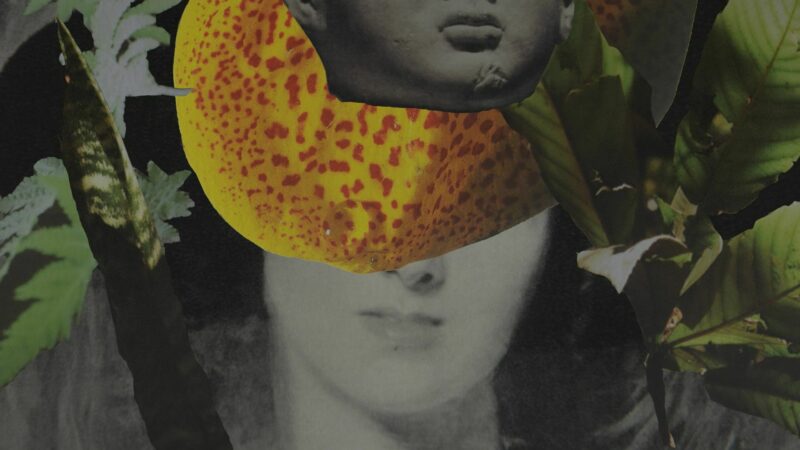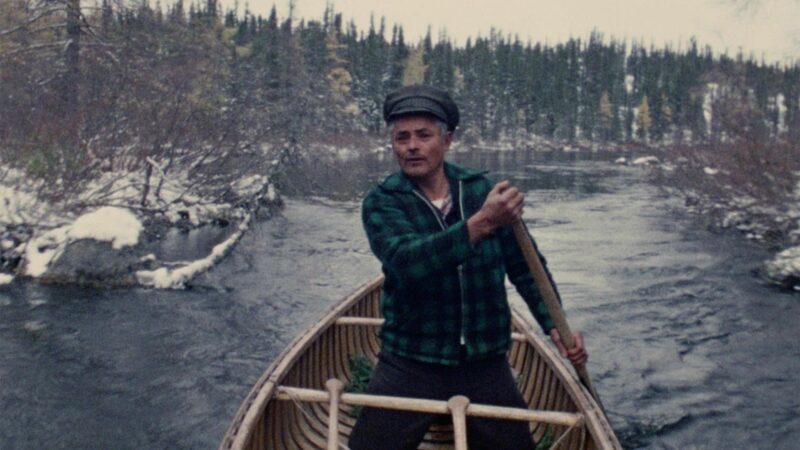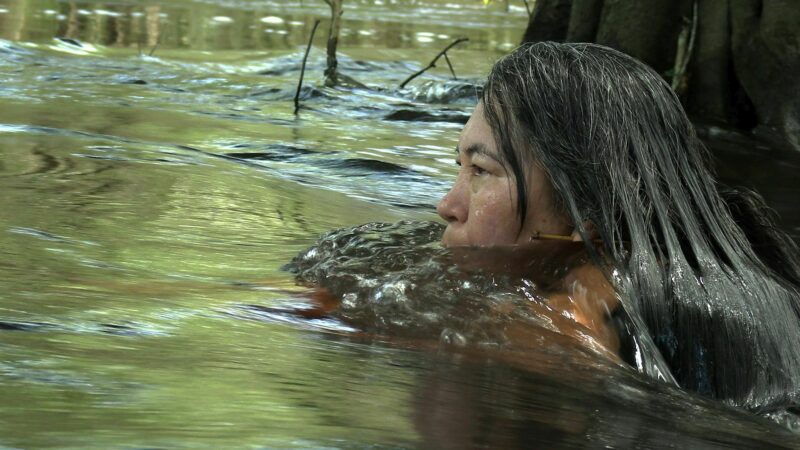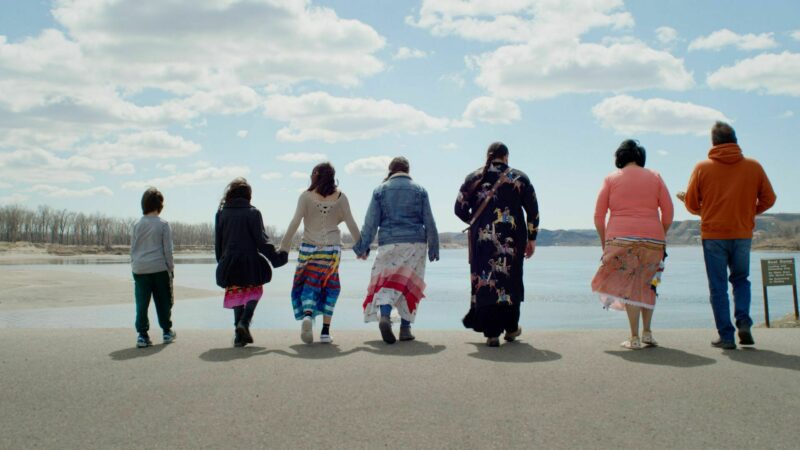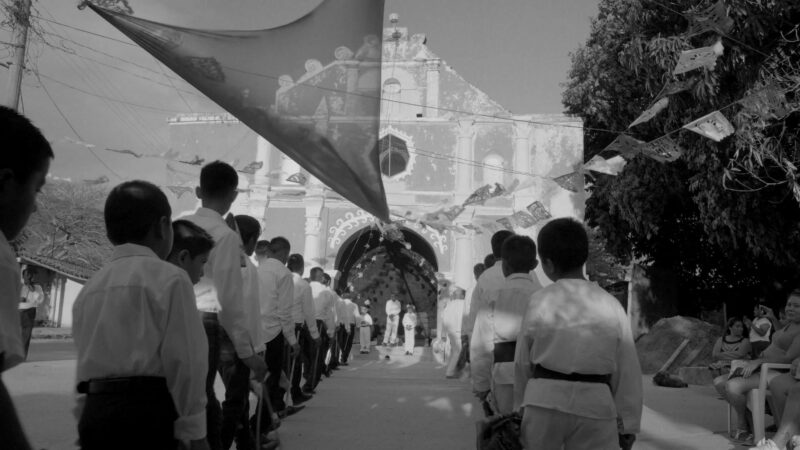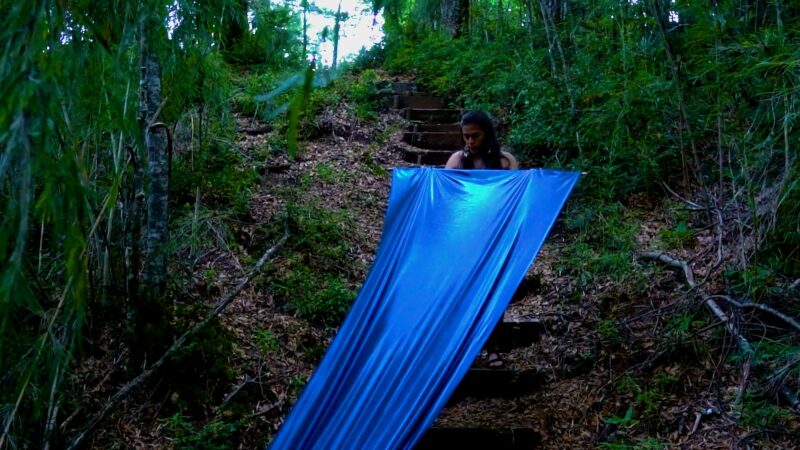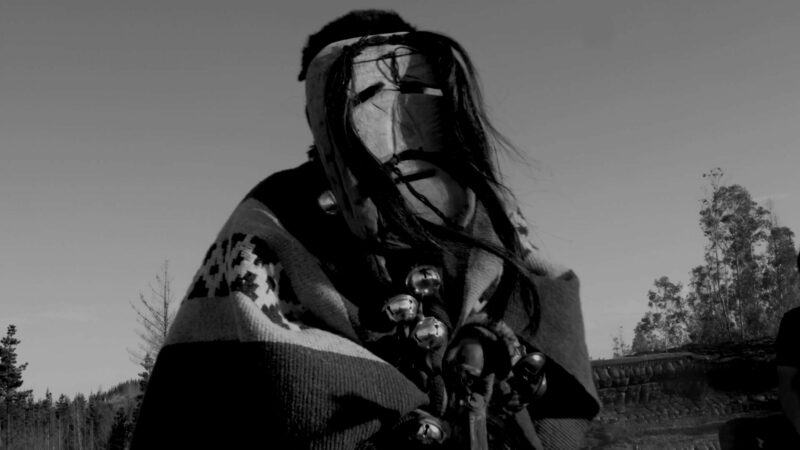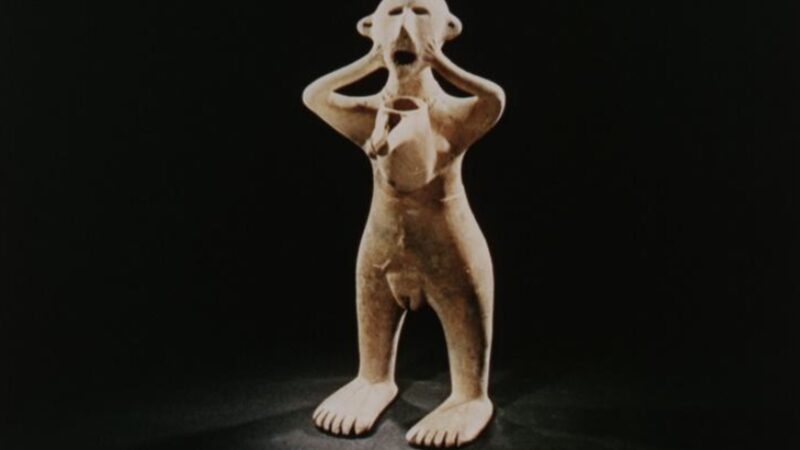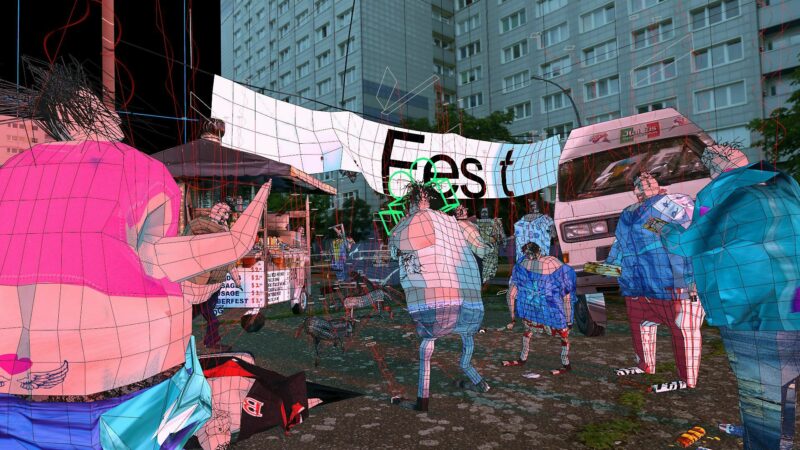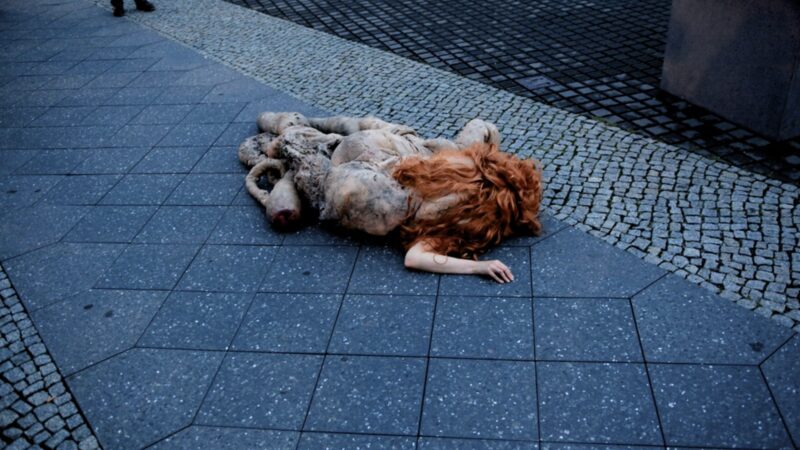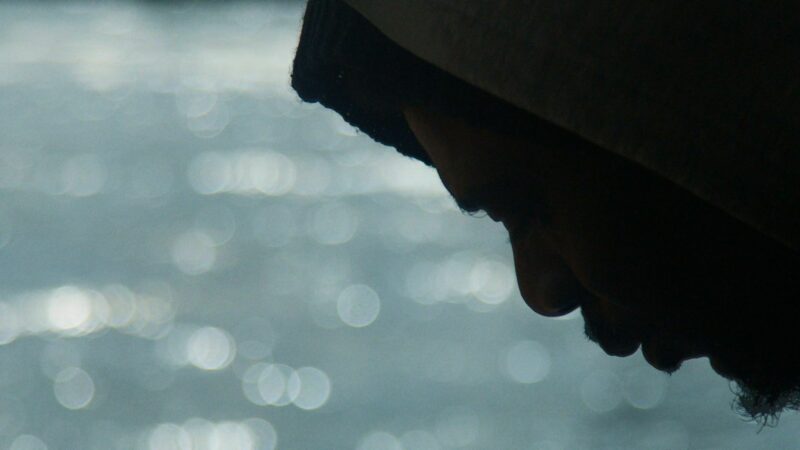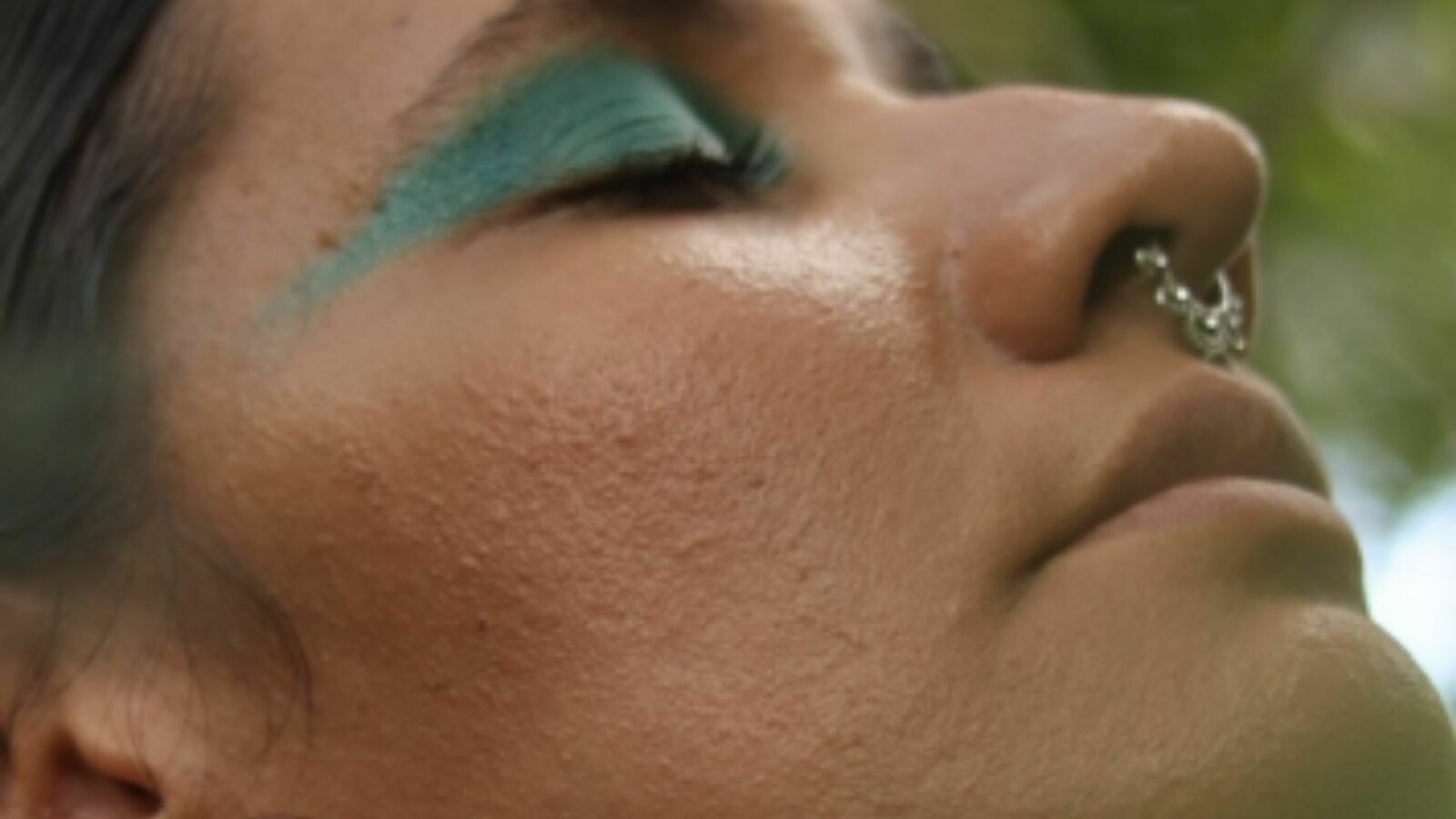
Uvi Isipò
Guilherme Fernandes
Presented only in theatres
This film is part of the program Indigeneities of the Americas
Uví isipó is a poem, a prayer, written by Arra Hué in an Indigenous language from the South of the world. It was published on April 11, the date when General Rivera, in 1831, carried out the Salsipuedes massacre against these peoples. From then on, the surviving women and children were sold and enslaved, adopting a new cultural identity that denied their own heritage.
A mestiza, Brazilian, and Uruguayan, Arra Hué reclaims the languages of her people to revive something beyond pain. She writes this text to bring to life the words and worldview of a people who are still fighting today for recognition. Uruguay is, in fact, one of only two countries on the American continent that does not acknowledge the existence of Indigenous peoples before the invasion, despite the presence of an astonishing diversity of eight distinct nations.
Curator’s note:
As part of the new section Indigeneities of the Americas of Le FIFA, ARCA International Festival of Films on Arts, presents the Uruguayan short film UVI ISIPÖ, directed by Guilherme Fernandes, based on an original idea, poem, and performance by the Charrúa artist and activist Arra Hué. In the Chaná language, Uvi Isipö means River of Life, and it is precisely the river — with its incessant flow, liquid memory, and ancestral pulse — that guides us on this cinematic journey.
Uruguay has long been considered a country without Indigenous people, a land where the official history decreed the disappearance of the Charrúas following the massacre at Salsipuedes in 1831. However, like the hidden course of a subterranean stream, memory persists. Today, thousands of people reclaim their Indigenous identity and fight for the recognition of their culture. Paradoxically, Uruguay is one of only two countries on the continent that still does not recognize its Indigenous peoples before the UN.
In the face of this imposed silence, UVI ISIPÖ is an act of resistance. Arra Hué weaves images, sounds, and poetry to recover the voice of her ancestors. This film immerses us in the intimate relationship between nature and identity, affirming that territory is not just a physical space, but also a refuge of memory. In the murmur of the water resonates the echo of those who were, and those who still are.
The Chaná language, once thought to be extinct, survives in words that now transform into verses, into images, in a cinema that not only documents but also revives what time sought to erase. In Arra Hué’s voice, the language becomes a bridge between the past and the present, a current that flows against oblivion.
The inclusion of UVI ISIPÖ in the Autochthonies of the Americas section of Le FIFA is part of a collective effort alongside the Fotogenia Festival from Mexico, DART Chile, and ARCA from Uruguay to amplify these voices. Like a tapestry that unites the continent from south to north, this initiative celebrates the diversity of struggles, stories, and expressions of Indigenous peoples.
Cinema, in its power to capture the ephemeral and make it eternal through art, is here a tool for justice and memory. Through it, official narratives crumble, and other truths emerge — other ways of inhabiting the world. As the artist Joaquín Torres García said, “Our north is the south.” From this south, which has long been rendered invisible, UVI ISIPÖ reminds us that history is not written in stone, but in water. And water, always, finds its way.
-Mercedes Sader
This film is part of the program Indigeneities of the Americas
Uví isipó is a poem, a prayer, written by Arra Hué in an Indigenous language from the South of the world. It was published on April 11, the date when General Rivera, in 1831, carried out the Salsipuedes massacre against these peoples. From then on, the surviving women and children were sold and enslaved, adopting a new cultural identity that denied their own heritage.
A mestiza, Brazilian, and Uruguayan, Arra Hué reclaims the languages of her people to revive something beyond pain. She writes this text to bring to life the words and worldview of a people who are still fighting today for recognition. Uruguay is, in fact, one of only two countries on the American continent that does not acknowledge the existence of Indigenous peoples before the invasion, despite the presence of an astonishing diversity of eight distinct nations.
Curator’s note:
As part of the new section Indigeneities of the Americas of Le FIFA, ARCA International Festival of Films on Arts, presents the Uruguayan short film UVI ISIPÖ, directed by Guilherme Fernandes, based on an original idea, poem, and performance by the Charrúa artist and activist Arra Hué. In the Chaná language, Uvi Isipö means River of Life, and it is precisely the river — with its incessant flow, liquid memory, and ancestral pulse — that guides us on this cinematic journey.
Uruguay has long been considered a country without Indigenous people, a land where the official history decreed the disappearance of the Charrúas following the massacre at Salsipuedes in 1831. However, like the hidden course of a subterranean stream, memory persists. Today, thousands of people reclaim their Indigenous identity and fight for the recognition of their culture. Paradoxically, Uruguay is one of only two countries on the continent that still does not recognize its Indigenous peoples before the UN.
In the face of this imposed silence, UVI ISIPÖ is an act of resistance. Arra Hué weaves images, sounds, and poetry to recover the voice of her ancestors. This film immerses us in the intimate relationship between nature and identity, affirming that territory is not just a physical space, but also a refuge of memory. In the murmur of the water resonates the echo of those who were, and those who still are.
The Chaná language, once thought to be extinct, survives in words that now transform into verses, into images, in a cinema that not only documents but also revives what time sought to erase. In Arra Hué’s voice, the language becomes a bridge between the past and the present, a current that flows against oblivion.
The inclusion of UVI ISIPÖ in the Autochthonies of the Americas section of Le FIFA is part of a collective effort alongside the Fotogenia Festival from Mexico, DART Chile, and ARCA from Uruguay to amplify these voices. Like a tapestry that unites the continent from south to north, this initiative celebrates the diversity of struggles, stories, and expressions of Indigenous peoples.
Cinema, in its power to capture the ephemeral and make it eternal through art, is here a tool for justice and memory. Through it, official narratives crumble, and other truths emerge — other ways of inhabiting the world. As the artist Joaquín Torres García said, “Our north is the south.” From this south, which has long been rendered invisible, UVI ISIPÖ reminds us that history is not written in stone, but in water. And water, always, finds its way.
-Mercedes Sader
| Director | Guilherm Fernandes |
| Concept | Arra Hué |
Session
• Office national du film du Canada - Salle Alanis-Obomsawin
Monday, march 17, 2025, 08:00 p.m. — 08:54 p.m.
Production
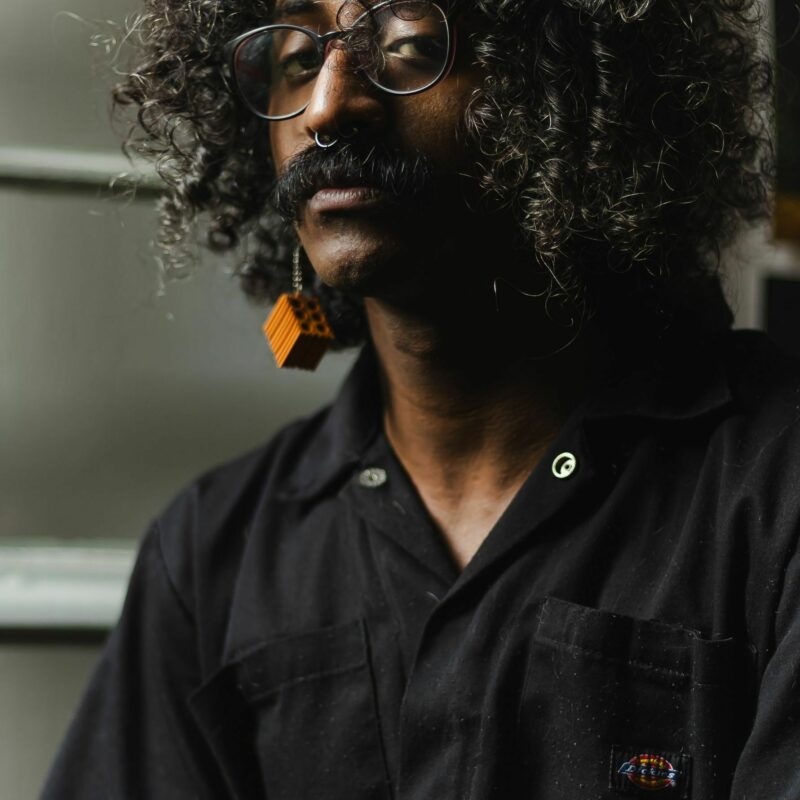
Guilherme Fernandes
Guilherme Fernandes is a stage director and photographer based in Porto Alegre, RS, Brazil. He began his career as a fashion photographer, accessing and telling the stories of Black bodies and the spaces they occupy in society, with the aim of building a new image of how Black people perceive themselves and reclaiming control over their own narratives, while dignifying the ethno-cultural diversity of Rio Grande do Sul.
He directed the short films “VESPAS” (2024) and “UVÍ ISIPÓ” (2024), as well as the music video “B.O. s à Parte”, by the artist Kizua, Trindade, Buckreates, and The Yang (2024), and the video art piece “Espelho d’água, quando reflete, muda.” (2024).
As a director of photography, he worked on the short film by director Laryssa Machada “Ten en cuenta que tu intención no es entregar los mapas” (2022) and on the documentary “Ibejis de Esteio — Infância negra na Sociedade Benificente Yle Africano Oxum e Xango” (2024).
Biographical notes provided by the film production team.
He directed the short films “VESPAS” (2024) and “UVÍ ISIPÓ” (2024), as well as the music video “B.O. s à Parte”, by the artist Kizua, Trindade, Buckreates, and The Yang (2024), and the video art piece “Espelho d’água, quando reflete, muda.” (2024).
As a director of photography, he worked on the short film by director Laryssa Machada “Ten en cuenta que tu intención no es entregar los mapas” (2022) and on the documentary “Ibejis de Esteio — Infância negra na Sociedade Benificente Yle Africano Oxum e Xango” (2024).
Biographical notes provided by the film production team.
In the same session
Office national du film du Canada - Salle Alanis-Obomsawin
Monday, march 17, 2025, 08:00 p.m.


You would like




